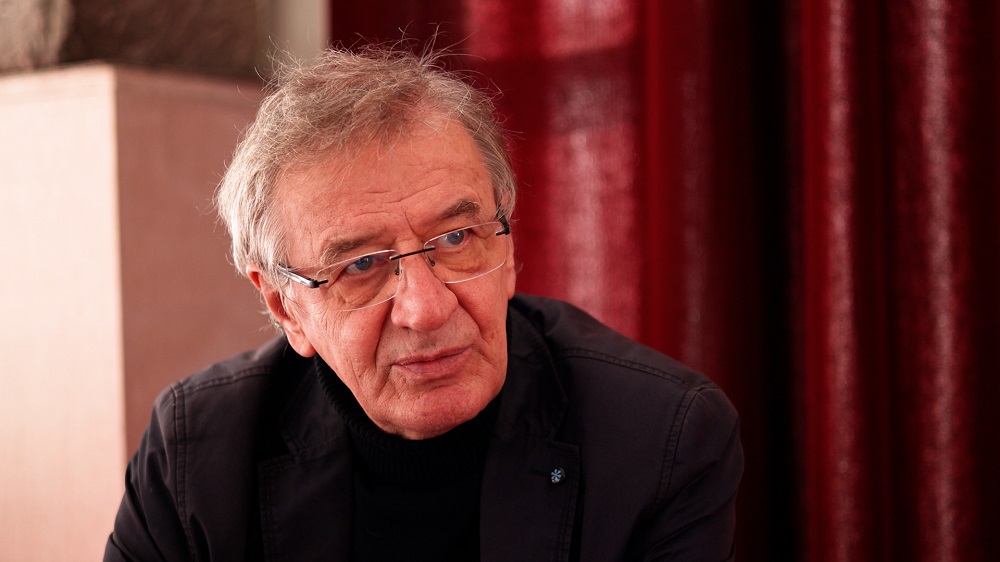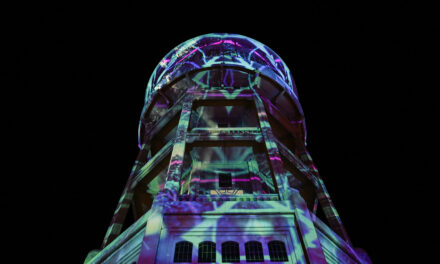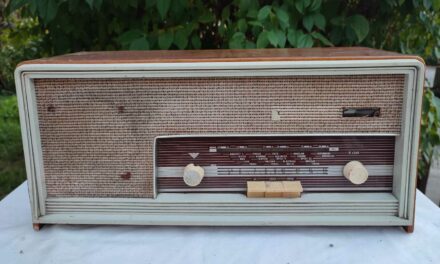In the interview, one of the most well-known Hungarian actors talks about the beginning of his career, the essence of theater, crooked mirrors and the differences between characters and his personality.
The highlight of the 20th festival of the European Theater Union is the performance of the Szigligeti Theater in Szolnok The Miser , whose main role is played by the actor Zoltán Mucsi.
Tell us a little about the beginning of your career. You are not a drama graduate, how did you end up on this path?
In 1979, he was accepted for the position of assistant actor at the Szigliget Theater in Szolnok, which, as I say, is the gentleman's name for an extra. I was very happy to be accepted. A couple of years before that, I went to an amateur group, there I got in closer contact with theater production, then I was a member of a professional company, and I applied three times to the College of Drama. All three times, I was eliminated in the second round and continued working in the theater, where one sentence started to become several sentences, then even more sentences, and then came roles and bigger roles.
I was in Szolnok for fifteen years, then I thought that I should measure the weight of these 15 years a hundred kilometers away. Then we were freelancing, we created a great Midsummer Night's Dream, which became a great, cult performance, from which the Barka Theater was born. I left Bárka Színház after a few years, because things didn't turn out the way we initially thought. Then another freelancing, and the Chalk Circle came. It's been a fantastic few years. This was probably the strongest company I was in. Then I returned to Barka for a few years. Now I'm guest starring in a few places. Last season, I received an invitation from the Szigligeti Theater in Szolnok, where I returned after a long time.
Why was this world important to you? What do you think the purpose of acting and theater is?
Of course, if I want to use big words, I think, or rather believe, that theater makes the world better for a few hours.
The theater looks for answers to things that it sees as not being right, or that it sees as not being able to provide a solution, but it asks the questions so that we can then try to find a solution or an answer. There was nothing wrong with thinking. There is a performance that reflects on the situation with humor, which, even if it is painful, but if we can laugh at it, we are closer to some kind of solution, to tolerating that situation. It could be something like this.
Your name has practically become a brand. Whether his name comes up in connection with a play or a film, everyone can immediately associate something with him. What do you think this is due to?
Obviously, this popularity is a consequence of the birth of the Internet. Certain things did not reach people 20-30 years ago, or they could only read about a particular theater 100 or 500 kilometers away in connection with a review. Now everything is delivered in half an hour, and of course this can even be deceiving, because parts of the film or part of the performance are stuck out, so there are many people who have only seen that scene from the given performance or movie, not the whole thing. Obviously, this brings a different kind of popularity, which was not there before. Now, I'm going to brazenly say that some of these people love these scenes, especially those who are up on these platforms, a significant portion of them are there for the humorous outtakes.
How do you feel about the fact that most people know you as an actor holding a crooked mirror?
On the one hand, humor is extremely important to life and existence. If we can laugh at something, if we have self-irony, then existence becomes more bearable. Humor is such that you have to sting a little, it hurts a little, but you don't have to hurt or humiliate with it. Obviously, there are efforts to do this, and I hope that these particular scenes were realized in such a way that they are not humiliating for anyone.
Obviously, we use these to reflect on what is around us. Of course, it's a bit enlarged and distorted, so it's like the mirror in the enchanted castle, in which we don't look like ourselves, even though they are us.
What I know is that the electrician scene is very popular. I didn't invent swearing. People swear, the only difference is that it's very condensed here. Hopefully most of humanity doesn't do it to this extent, but we know that some people can be very orderly in certain situations. My experience is that they don't usually say "the cat kicks" or "the rooster pecks" when driving. These are rarely heard.
Let's talk a little bit about the evening's The Miser . Somewhere this is also a crooked mirror, it formulates a social critique. How did you take on such an extreme role? Does a performer have to find themselves in every role, or are they more fortunate if they can keep it away from them?
It depends on so many things. Depending on the role, the rehearsal process, and what the purpose of the performance is, obviously one gets involved in one way or another. I'm standing there, these sentences are coming from my mouth. I'm the miser there. Obviously, as you said, it's a crooked mirror. When money eats you, so someone becomes a tomboy, this is embedded in humor. And maybe there is also the question of how such a person, who is so restricted and only money is the central element of existence, destroys his environment.
In addition to portraying such characters, is it possible or would you like it to be possible for viewers to see you as you really are?
I think it is. It will be shown now too, as a report is being prepared and a book of conversations with me has also been prepared. Now I'm working on something like that, which is my life, but I think that what happens on stage or on the screen is the most important thing for me personally. The rest...need some kind of secret. I have a private life that belongs to no one.
Source and featured image: Maszol













